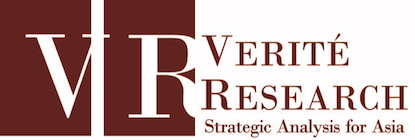ඉතිහාසය
ශ්රී ලංකාවේ මාධ්ය හිමිකාරත්වයේ ඉතිහාසය, විශේෂයෙන් ම රාජ්ය මාධ්යයද ඇතුළුව, බ්රිතාන්ය යටත් විජිත යුගය දක්වා දිව යන අතර, ‘ලංකාලෝක‘ සහ ‘ඉලංගෙයි පාතුකාවලන්‘ වැනි සිංහල හා දෙමළ භාෂා පුවත්පත්, අයිතිය සහ අන්තර්ගතයට යටත් විජිත පාලනය වෙතින් සිදු වූ බලපෑම්වලට ප්රතිචාරයක් ලෙස ආරම්භ විය. ක්රමයෙන් වැඩෙන්නට වූ නිදහස් ව්යාපාරය එවකට සිලෝන් නමින් හැඳින්වුණු ශ්රී ලංකාව ඩොමීනියන් තත්ත්වය ළඟා කරගන්නා පසුබිමක් වෙත වසර 1948 දී රැගෙන එනු ලැබීය. 1972 දී ‘සිලෝන්‘ ජනරජයක් බවට පත්වූයේ එහි නම ශ්රී ලංකාව ලෙසට වෙනස් කරමිනි. නිදහසින් පසු සිංහල හා දෙමළ භාෂාවන්ගෙන් අන්තර්ගතයන් ඉදිරිපත් කරන මාධ්යයන් සංඛ්යාව වැඩි වන්නට විය. යටත් විජිත පාලන යුගයේදී මාධ්ය හිමිකාරීත්වය පාලනය කෙරෙනු ලැබූ අන්දම විවේචනයට ලක් වූ නමුදු, පශ්චාත්-ස්වාධීන ආණ්ඩු විසින් ද රාජ්ය හිමිකාරීත්වය සම්බන්ධව සමාන පියවරයන් අනුගමනය කරන අතර ම එහි දිගුවක් ලෙස ජන මාධ්ය පාලනය කිරීමට පිවිසෙනු දක්නට ලැබිණි.
මාධ්ය වෙළඳපොල ඒකාධිකාරයක් බවට පත් කරමින් 1960 ගණන්වල මුල් භාගයේ සිට ප්රධාන මාධ්ය ආයතන ජනසතු කිරීම සඳහා රජය විසින් පියවර ගනු ලැබීය. ජන මාධ්යය රාජ්ය වෙතින් පාලනය වීම සැලකිය යුතු හුවමාරුවකට ලක් විය. වාමාංශික පක්ෂයක් වූ ජනතා විමුක්ති පෙරමුණ (ජවිපෙ) විසින් වසර 1987 දී සිය දෙවන සන්නද්ධ අරගලය දියත් කිරීමත්, දෙමල විමුක්ති කොටි ඊළාම් (එල්ටීටීඊ) සංවිධානය සහ රජය අතර යුධ ගැටුම් ඇති වීමත් සමග මාධ්ය හිමිකාරීත්වය නියාමනය කිරීම සඳහා ප්රබල පියවර ගන්නා ලදී. එල්ටීටීඊ සංවිධානය විසින් හමුදා සෙබලුන් 13 දෙනෙකු ඝාතනය කරන ලද බවට චෝදනා එල්ල වීමත් සමග වසර 1983 ජුලි මාසයේ දී දෙපාර්ශවය අතර සන්නද්ධ ගැටුම් ආරම්භ විය. කෙසේ වෙතත්, මීට පෙර සිට ම සිංහල-නැඹුරුවක් සහ දෙමළ-නැඹුරුවක් සහිත දේශපාලනඥයන් අතර විවිධ කරුණු සම්බන්ධව නොසන්සුන්භාවයන් පැවති අතර, (සිංහල භාෂා පනත හෙවත්) 1956 අංක 33 දරණ රාජ්ය භාෂා පනත සම්බන්ධ අර්බුද ද මීට ඇතුලත් ය. අතිශය දරුණු වූ 26 වසරක ප්රචණ්ඩකාරී කාල පරිච්ඡේදයෙන් පසු, එල්ටීටීඊය 2009 මැයි මාසයේ දී රජය විසින් හමුදාමය පරාජයකට ලක් කරන ලදී. මේ කාලය තුළ මාධ්ය පුද්ගලීකරණය වේගවත් කිරීමට පියවර ගනු ලැබූව ද, ජනතා විමුක්ති පෙරමුණ (ජවිපෙ) සන්නද්ධ අරගලය සහ එල්ටීටීඊය සමග පැවති සන්නද්ධ ගැටුම්කාරී තත්ත්වය ප්රබල රාජ්ය නියාමනයක අවශ්යතාව සාධාරණීකරණය පිණිස හේතු සපයනු ලැබීය.
"යහපාලනය පිළිබඳ වරම" යටතේ දේශපාලන ක්ෂේත්රයට පිවිසෙමින් වර්තමාන රජය මාධ්ය නිදහස ඇතුළු මූලික නිදහස ආරක්ෂා කිරීමේ වැදගත්කම පුනරුච්ඡාරණය කර ඇත. කෙසේ වෙතත් පශ්චාත් යුධ වාතාවරණය තුළ වුවද හිමිකම්වල සහ මතවාදයන්හි බහුත්වභාවය තවමත් වැදගත් වේ.
මූලාශ්ර
Bahai Teachings. (2013). Baha’is and Communism.
Image retrieved from Bahai Teachings on 11 October 2018.
Commonwealth Legal Information Institute. Sri Lanka Press Council Law (No. 5 of 1973).
Retrieved from Commonwealth Legal Information Institute on 23 July 2018.
Commonwealth Legal Information Institute. Ceylon Broadcasting Corporation Act (No. 37 of 1966).
Retrieved from Commonwealth Legal Information Institute on 23 July 2018.
Commonwealth Legal Information Institute. Proscribing of Liberation Tigers of Tamil Eelam And Other Similar Organisations Law (No. 16 of 1978).
Retrieved from Commonwealth Legal Information Institute on 23 July 2018.
Crawley, William, Page, David, and Pinto-Jayawardena, Kishali. (Eds.). (2015). Embattled Media: Democracy, Governance and Reform in Sri Lanka.
Retrieved from Google Books on 23 July 2018.
Daily News. (2017). The following extract is reproduced from Ceylon Daily News of February 5, 1949.
Image retrieved from Daily News on 11 October 2018.
De Silva, Annemari. (2018). Limits of Expression: Creative Artists and Censorship in Sri Lanka (Publication).
Retrieved from International Centre for Ethnic Studies website on 23 July 2018.
Doyle, Kit. (2018). A recent study suggests widespread censorship of student publications at American Christian schools.
Image retrieved from Religion News Service on 11 October 2018.
Jones, Derek. (2001). Censorship: A world encyclopedia.
Retrieved from Google Books on 23 July 2018.
Lake House. Our History- Lake House Building.
Image retrieved from Lake House on 11 October 2018.
Liyanawatte, Dinuka. (2013). An air force officer holds Sri Lanka's national flag as the sun sets at Galle Face Green in Colombo.
Image retrieved from Foreign Affairs on 11 October 2018.
New Democratic Front. The Election Manifesto of President Maithripala Sirisena. New Democratic Front.
Retrieved from New Democratic Front on 23 July 2018.
Parliament of the Democratic Socialist Republic of Sri Lanka (2018). The Right to Information Act No. 12 of 2016.
Retrieved from Parliament of the Democratic Socialist Republic of Sri Lanka on 23 July 2018.
Perper, Rosie. (2018). After declaring a state of emergency, Sri Lanka has banned Facebook, Instagram, and WhatsApp.
Retrieved from Business Insider on 23 July 2018.
Reporters without Borders. (2016). World Press Freedom Index 2008.
Retrieved from Reporters without Borders on 23 July 2018.
Seneviratne, Madhura. (2017). 20th Amendment requires referendum after gaining two-thirds majority.
Image retrieved from SBS on 11 October 2018.
The Sunday Times (2018). TRC shuts TV network linked to Prime Minister’s brother
Retrieved from the Sunday Times on 23 July 2018.
The Sunday Times. (2018). FMM condemns President Sirisena’s attempt to re-activate Press Council.
Retrieved from the Sunday Times on 23 July 2018.
Vikalpa. (2010). Let's bring justice to Black January.
Image retrieved from Flickr on 11 October 2018.


